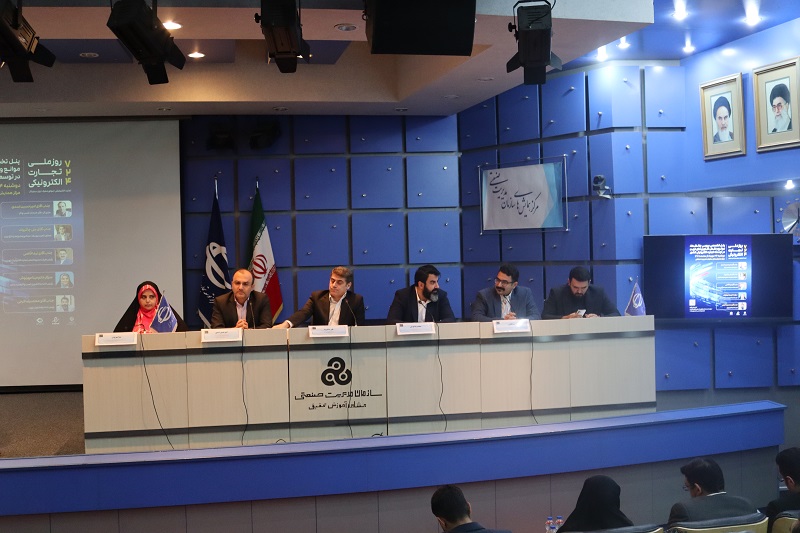A specialized panel titled ‘Exploring Challenges, Barriers, and the Role of Innovative Technologies in the Development of E-Commerce in the Country’ was held at the 724 National Electronic Commerce Day event.
According to IDEA, Mina Mehrnoush, the head of the National Union of Virtual Businesses, Amir Hossein Asadi, the Director-General of the Office of Business Services, Nima Ghazi, the Chairman of the Board of the Electronic Commerce Association of Tehran Province, Mohammad Reza Faraji, the head of the Union of Technologists in Tehran, and Ali Chaghravand, Deputy of Commissions, Assemblies, and Councils of the Iran Chamber of Commerce, participated in this panel discussion.
At the beginning of the panel, Mehrnoush expressed satisfaction with the Ministry of Industry’s perspective on the role of virtual businesses and the establishment of a working group for digital economic development. She stated, ‘Government institutions delegate tasks to the private sector, but during the course of implementation, it is observed that a government agency performs the same task after substantial expenses are borne by the private sector. They use government data as an excuse, although this data may relate to the sale of chicken in a city, and it’s not governmental!’
Mehrnoush emphasized that these remarks are not directed at individuals but rather government ministries. She added, ‘When work is in progress in the private sector, suddenly a government agency or ministry intervenes and requests permission, creating obstacles. Therefore, I request the government to be actively involved in activities and supervision with a focus on a single entity, such as the Ministry of Industry, and that other agencies coordinate with that entity. Additionally, many data and information are not governed by law, so the government should provide this information to the private sector and not compete with it.’
Asadi also stated, ‘Yesterday, we witnessed the issuance of the branding process, and we need to network for progress and distribute resources. In fact, we need network-building companies.’
Chaghravand explained, ‘Ministries that form associations have good potential for employment. When we look at the growth of penetration rates, we realize the presence of high demand, which indicates significant growth opportunities.’
Faraji continued, ‘When the COVID-19 pandemic struck, online companies and businesses made significant contributions to help us overcome the crisis and experienced significant growth themselves. Nowadays, if obstacles like the entry of smuggled goods into platforms occur, and these businesses face a crisis, the Ministry of Industry must come to the field to help businesses resolve these challenges.’
Mehrnoush explained regarding smuggled goods appearing on platforms, ‘The reason we see smuggled goods on platforms today is that they are transparent, and these products are observable. Smuggled goods existed in the traditional sector before, but the difference is that back then, they were not observable, and we were unaware of their existence. The fact that platforms enhance this transparency is a positive development.’
Ghazi also conceded at the end of the panel, ‘We are now in a place where 10% and 20% growth rates do not even enable us to compete with neighboring countries. The main issues in e-commerce today are that the government interferes in the market process through directive pricing or creating market restrictions. When this challenge arises and the infrastructure encounters problems, these activities go underground, and we face issues like the entry of smuggled goods. Two other issues are entry into the stock market and migration.’
[postx_template id=”4061″]




No Comment! Be the first one.